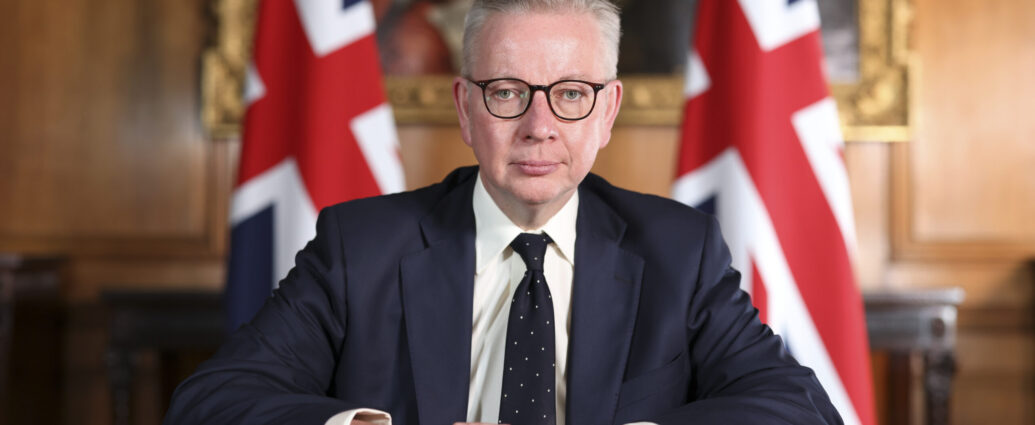Michaela Cullen
The UK government has published a new definition of extremism aiming to stop groups or individuals from spreading radical views which could lead to violence.
The new definition follows an increase in protests in London calling for a ceasefire in Gaza.
It also comes after the government came under fire for recent controversy over Islamophobia accusations against former Tory MP Lee Anderson.
Anderson’s comments resulted in his dismissal from the Tory Party, and consecutive accession as the first MP of Reform UK. Following his suspension, Prime Minister Rishi Sunak spoke of a commitment to “stamp out” extremism.
“Tinkering with a new definition is not enough.”
The definition was supervised within the Independent Review of Prevent, an internal government report that placed “greater emphasis on tackling ideology and its radicalising effects,” according to a governmental review.
However, this new extremism definition has been criticised as “out of date” by Labour’s deputy leader Angela Rayner, who instead calls for a definition of Islamophobia, which is still not officially defined in the UK.
She said: “tinkering with a new definition is not enough.”
The New Definition
A government publication released the new definition on the 14th of March, updating the previous definition set out in the Prevent Strategy – a parliamentary review that first defined extremism in 2011.
The new definition states:
Extremism is the promotion or advancement of an ideology based on violence, hatred or intolerance that aims to:
- negate or destroy the fundamental rights and freedoms of others; or
- undermine, overturn or replace the UK’s system of liberal parliamentary democracy and democratic rights; or
- intentionally create a permissive environment for others to achieve the results in (1) or (2).
As part of the definition, ministerial departments will publish a set of engagement principles that will be used to assess groups so the government does not meet with, fund or provide platforms for extremism.
Political and Public Backlash
The new definition has sparked controversy over the specific mentioning of groups listed in the government report as examples of extremist ideologies.
Both Islamist and Neo-Nazi ideologies were mentioned in parliament.
Conservative MP Michael Gove told the parliament: “Islamist and neo-Nazi groups in Britain are operating lawfully, but they advocate and work towards the replacement of democracy with an Islamist or Nazi society.”
Gove said “It is gravely concerning that the conflict in the Middle East is driving further polarisation.”
“We have seen a terrible increase in antisemitic and anti-Muslim hate crime, as well as a very significant increase in radicalisation.”
Gove announced extra funding will be given to organisations that work on restricting anti-Muslim hate as part of an initiative to limit extremist oppositions toward Islamic groups.
But he also told MPs that five groups would be assessed against the new definition, voicing concerns over “Islamist orientation” of three of the groups.
According to the BBC, certain Islamic groups are allegedly threatening legal action if put on an official list.
Gove said there is “evidence that some Islamists and extreme right-wing groups and others who seek to tear our society apart are working together to maximise the reach of their message and cause.”
“Delegitimising lawful dissent in this way is itself undermining liberal democratic principles.”
The Muslim Association of Britain, Cage and Muslim Engagement and Development (MEND) was listed as a group to potentially be assessed, as Gove said they “give rise to concern for their Islamist orientation and views.”
“We will be holding those and other organisations to account to assess whether they meet our definition of extremism, and will take action as appropriate,” he said.
The Chief Executive of MEND, Azhar Qayum, responded to Gove’s accusations: “delegitimising lawful dissent in this way is itself undermining liberal democratic principles.”
He has also said he placed the government on legal notice.
READ NEXT:
-
EMPOWORD EXPLAINS: LEE ANDERSON ACCUSED OF ISLAMOPHOBIA
-
PROTESTS ACROSS UK MARK 100 DAYS OF ISRAEL-HAMAS WAR
-
ISRAEL-GAZA CONFLICT: INTERNATIONAL REACTIONS THREE MONTHS ON
Featured image courtesy of UK Government via Flickr. No changes were made to this image. Image licence found here.

